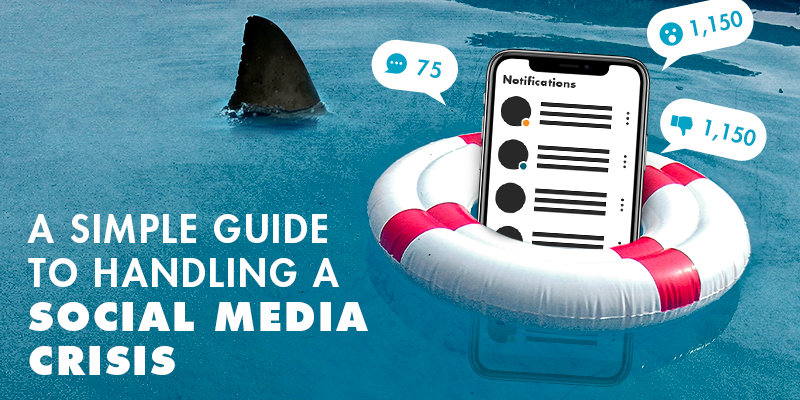Ever had a bad experience with a company? Maybe Amazon shipped you the wrong item or your flight was delayed. Maybe you waited way too long in the Starbucks drive-thru. Where’s the first place you take your complaint?
According to Sprout Social, 75% of customers believe that social media has equipped them to interact with brands more. About 47% will take their complaints straight to social rather than trying to fix an issue by contacting the company
These statistics show that having a strong social media plan is more important than ever, especially in the event of a crisis or inconvenience.
For example: back in June, HBO Max subscribers woke up to a strange email that had been delivered overnight in their inbox.
Subject line: Integration Test Email #1
Body text: This template is used by integration tests only.
Because of the confusion, people did the only sensible thing: they tweeted about it. More specifically, they tweeted at HBO to make sure they hadn’t been hacked or that this was part of a phishing email scheme. Eventually, HBO tweeted the following response from their account.
“We mistakenly sent out an empty test email to a portion of our HBO Max mailing list this evening. We apologize for the inconvenience, and as the jokes pile in, yes, it was the intern. No, really. And we’re helping them through it.”
Soon the internet rallied around this unnamed intern and began sharing their own stories of work mishaps.
I don’t know what the decision process was for the HBO social team in calling out what happened, but it was the right move. Seeing HBO take a second to publicly say, “Hey, it’s ok to make a mistake,” resonated with people. People understood and related. And, it probably did more to boost HBO’s Twitter engagement than any other tweet.
But there are times when a company doesn’t respond well to social media comments. One of my favorite marketing horror stories from this year was the Cinnamon Toast Crunch fiasco.
You may remember it: a picture went viral on Twitter after a man found shrimp tails in his favorite breakfast cereal. He tweeted at the company and in his DMs, they offered to send him a new box of cereal. Then, they released this statement:
“After further investigation with our team that closely examined the image, it appears to be an accumulation of the cinnamon sugar that sometimes can occur when ingredients aren't thoroughly blended. We assure you that there's no possibility of cross contamination with shrimp.”
Twitter comments about the Cinnamon Toast Crunch fiasco went on for days. The man publicly updated his audience (which was growing by the minute due to news articles coming out) on how the company was handling the situation and even posted photos of direct messages. This is an example of how a few social comments not handled well, quickly escalated to a social crisis.
So how can you be prepared to act more like HBO if something goes amiss on social? While there’s no perfect answer, there are some steps you can take to ease the pressure in case one should arise.
- Create a Social Media Policy:
What is the procedure when it comes to handling social accounts? Your team should sit down and have a plan before creating an account on any platform. Establishing brand voice, point of contacts in emergencies, and a response template for certain questions will ensure you are prepared. If someone voices a complaint, how long does it take for you to address the issue in a direct message instead of publicly? - Make Sure to Listen:
If you have great social listening set up on your accounts, then chances are you’ll see a comment before it spirals. Monitoring tags and mentions helps you stay on top of what people are saying before it goes viral. Here at TVG, we use expert social listening data to always stay ahead of comments, mentions and any potential crises for clients. - Honesty is the Best Policy:
Sometimes we make the wrong call. And it happens. But when something is your fault, make sure you own up to it and fix any mistakes. Your customers will remember it, sometimes for a long time, when you don’t. People want authenticity from brands they love and being honest with them will help you keep customers for life. - Give Your Social Team A Break:
The majority of social media teams are small, but mighty. If an issue escalates, your social team is the first line of defense. If a crisis does break out, make sure they have the tools they need to handle it and make the right calls. Sometimes, you might need an extra hand. TVG specializes in helping both small and large businesses with crises. You can give us a call at (314) 991-4641 to ensure your company puts its best foot forward.And finally, when it’s all over, give your social team time to decompress and step away from the inbox.
By Tobi Laukaitis, Account Executive at The Vandiver Group in St. Louis, Missouri
Follow The Vandiver Group on Facebook, Twitter, LinkedIn and Instagram. Read our other blogs here.

